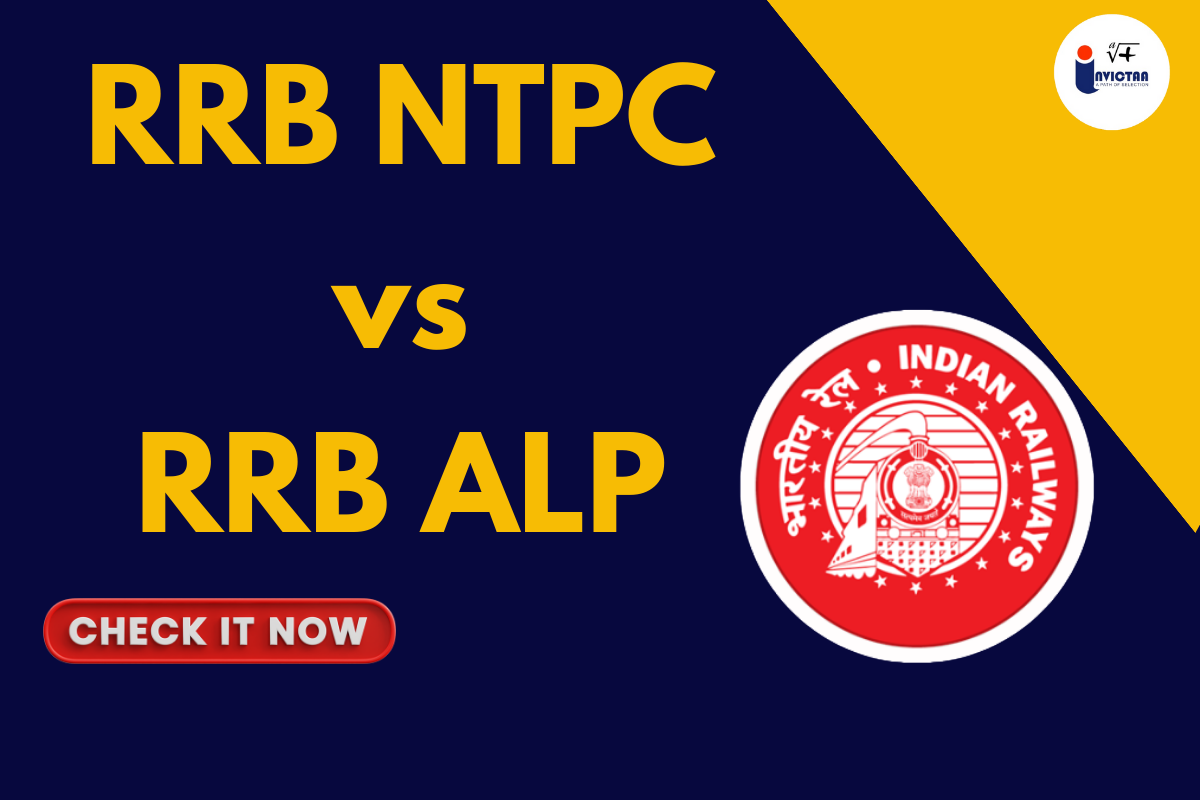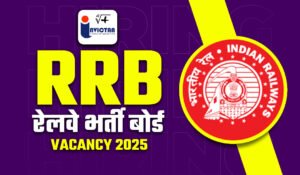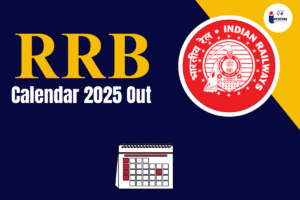RRB NTPC vs RRB ALP: The RRB offers an extensive list of posts available within the Indian Railways and conducts various examinations for these posts. Some of the most popular RRB NTPC (Non-Technical Popular Categories) and RRB ALP (Assistant Loco Pilot). Both provide excellent employment security, opportunities for growth, and benefits.
But the same can’t be said about the specifics of working in each of them and the eligibility. In this article, we will focus on the differences between RRB NTPC vs RRB ALP regarding the job profile, earnings, qualifications, etc., so that you can make a well-informed decision.
What is RRB NTPC?
RRB NTPC stands for Non-Technical Popular Categories. Candidates interested in taking on Non-technical Popular Category—Administrative/ Clerical type jobs within the Indian Railways. As can be seen, these are mainly non-technical, office-based, or station-based jobs. Typical job roles under RRB NTPC include Station Master, Goods Guard, Junior Clerk, and Traffic Assistant.
What is RRB ALP?
The RRB ALP, or Assistant Loco Pilot, performs an engineering role in the field. This job includes helping Locomotive Pilots conduct and coordinate train operations and rolling stock. Candidates must acquire some technical skills and knowledge about locomotive engines. The role of an Assistant Loco Pilot is quite physically strenuous and requires more realistic preparation than the RRB NTPC.
Also watch: RRB NTPC vs RRB ALP
Key Differences between RRB NTPC vs RRB ALP
| Criteria | RRB NTPC | RRB ALP |
| Full Form | Non-Technical Popular Categories | Assistant Loco Pilot |
| Nature of Job | Administrative and clerical roles | Technical, field-based roles related to trains operations |
| Posts Offered | Station Master, Goods Guard, Junior Clerk, Traffic Assistant | Assistant Loco Pilot |
| Work Environment | Office or station-based desk jobs | Field-based involves managing and operating locomotives |
| Educational Qualification | Minimum 12th pass for clerical posts, graduate for higher posts | Minimum qualification is a 10th pass with ITI or diploma in engineering |
| Technical Knowledge | Not required | Required, especially in mechanical, electrical, or electronics |
| Physical Demand | Low | High, as it involves operating locomotives |
| Career Growth | Slower progression | Faster promotions, especially to Loco Pilot and higher roles |
Eligibility Criteria for RRB NTPC vs RRB ALP
Here are the eligibility criteria while applying for RRB NTPC vs RRB ALP
RRB NTPC Eligibility
Educational Qualification:
For the 12th grade position applying for junior clerks, this was June. For the higher posts, such as station master/goods guard, the minimum required education is a bachelor’s degree in any level from a recognized university.
Age Limit:
The age of undergraduate applicants is between 18 and 30, and for those with a degree between 18 and 33. Some age relaxations are granted to the SC/ST and OBC categories.
RRB ALP Requirements
Educational Qualification:
Enrollment is only for those who have finished the 10th grade and have a Technical Certificate or Diploma in one of the disciplines, including mechanical, electrical, electronics, or automobile engineering.
Age Limit To Apply:
The applicant’s age for RRB ALP selection cannot be less than 18 or more than 28. The age relaxation benefit will also be available for reserved category candidates in the same way as RRB NTPC.
Salary Comparison for RRB NTPC vs RRB ALP
All other factors may make it a very tough decision between RRB NTPC vs RRB ALP, but the salary package is, in fact, very decisive. Both have relatively better salaries; however, they are different depending on the role and post.
| Salary Comparison for RRB NTPC vs RRB ALP | |||
| Post | Basic Salary (Per Month) | Grade Pay | Total Salary (Approx) |
| RRB NTPC | |||
| Junior Clerk | ₹19,900 | ₹2,800 | ₹25,000 – ₹35,000 |
| Goods Guard | ₹29,200 | ₹4,200 | ₹40,000 – ₹50,000 |
| Station Master | ₹35,400 | ₹4,600 | ₹50,000 – ₹60,000 |
| Traffic Assistant | ₹25,500 | ₹3,600 | ₹35,000 – ₹45,000 |
| RRB ALP | |||
| Assistant Loco Pilot | ₹19,900 | ₹1,900 | ₹25,000 – ₹35,000 |
| Senior Assistant Loco Pilot | ₹29,200 | ₹4,200 | ₹40,000 – ₹50,000 |
| Loco Pilot | ₹35,400 | ₹4,600 | ₹50,000 – ₹60,000 |
Also read: RRB Exam Calendar 2025
Apart from the basic salary, there are other perks and advantages that employees of RRB NTPC vs RRB ALP get including:
- Dearness Allowance (DA)
- House Rent Allowance (HRA)
- Transport Allowance
- Medical facilities for the employee and dependents
- Pension scheme under the National Pension Scheme (NPS)
Working Conditions and Roles
RRB NTPC Working Conditions
Jobs in RRB NTPC predominantly have desk and office environments. Such assignments are primarily administrative; thus, one must work from an office or railway station. For instance, a Station Master oversees station area train movements, and a Junior Clerk holds office work and maintains records.
RRB ALP Working Conditions
Anyone with an RRB ALP position does not have a sedentary lifestyle and must do fieldwork. An Assistant Loco Pilot works with the Loco Pilot so that trains operate safely. The Assistant Loco Pilot must have knowledge about the technical components of locomotives, be able to perform routine inspections and troubleshoot technical difficulties while in transit. This job might have untraditional shifts, and there is an outdoor work setting that involves working with the locomotives and keeping the safety of the passengers in mind.
Career Progression in RRB NTPC versus RRB ALP
The most critical factor in deciding between RRB NTPC vs RRB ALP is career advancement. Both competitive exams can undoubtedly lead to good railway careers, but the time for advancement is not the same.
Career Growth in RRB NTPC
Static Promotional Policies: In the case of RRB NTPC Jobs, several years must pass before a promotion can be offered. Take the example of a Junior Clerk; he/she might be passed over for some time before being promoted to Senior Clerk or other fellow administrators.
Overall career advancement: A Junior Clerk could progress to Senior Clerk and Chief Clerk, while a Stationmaster could advance to upper management levels.
RRB ALP Career Growth
Faster Promotions: Compared to RRB NTPC, career growth in RRB ALP is quicker. After serving as an Assistant Loco Pilot, employees can be elevated to Senior Assistant Loco Pilot, Loco Pilot, and later Senior Loco Pilot.
Promotion Path: Assistant Loco Pilot then Senior Assistant Loco Pilot then Loco Pilot then Senior Loco Pilot then Loco Supervisor.
RRB NTPC vs RRB ALP: Which One is Suitable for You?
The boolean comparison should not be the only thing one relies upon when analyzing RRB NTPC vs RRB ALP. This choice will primarily be based on your education level, aspirations, and other personal factors.
Choose RRB NTPC if:
- You like the idea of having a 9 to 5 administrative job.
- You have a college degree and are searching for jobs that require you to sit in an office.
- You want a safe and sedentary occupation.
Choose RRB ALP if:
- You like to work in the field, and do not restrict yourself to the desk.
- You possess a diploma or ITI in engineering disciplines such as Mechanical, Electrical, or Electronics.
- You want off-the-field work but are ready for nonstandard hours.
RRB NTPC vs RRB ALP FAQs
Q1 What is the difference between RRB NTPC vs RRB ALP?
Ans RRB NTPC is for non-technical admin posts such as station master or clerk whereas RRB ALP is for the technical aspect of running trains as an assistant loco pilot.
Q2 What are the minimum qualifications for RRB NTPC vs RRB ALP?
Ans RRB NTPC needs a candidate to pass the intermediate or graduates while a candidate for RRB ALP needs to pass the 10th standard and preferably have an ITI or engineering diploma as well.
Q3 Which have high career growth in RRB NTPC vs RRB ALP?
Ans The RRB ALP gives an edge here as it is focused on quicker growth to more technical positions like Senior Loco Pilot whereas RRB NTPC has slow but sure growth in regard to admin posts.





